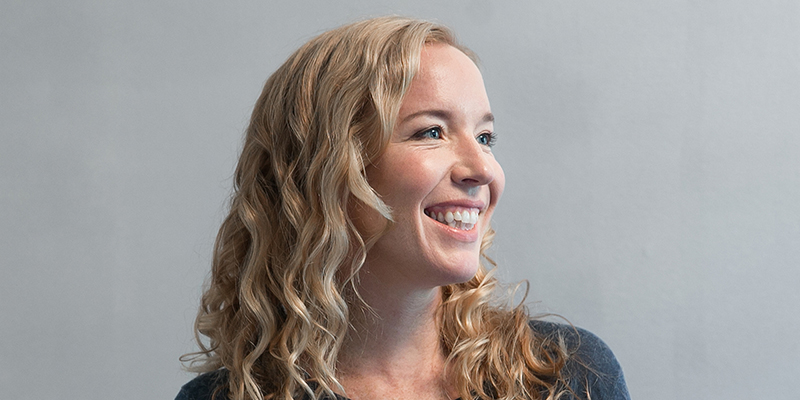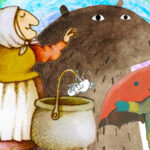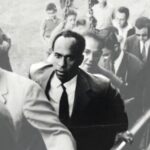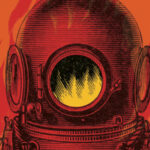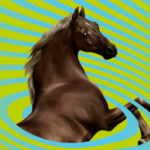Rebecca Donner on the Family Story It Took Nearly a Lifetime to Write
This Week on Beyond the Page: The Best of the Sun Valley Writers‘ Conference
Welcome to Beyond the Page: The Best of the Sun Valley Writers’ Conference. Over the past 25 years, SVWC has become the gold standard of American literary festivals, bringing together contemporary writing’s brightest stars for their view of the world through a literary lens. Every month, Beyond the Page curates and distills the best talks from the past quarter century at the Writers’ Conference, giving you a front row seat on the kind of knowledge, inspiration, laughter, and meaning that Sun Valley is known for.
In this episode, host John Burnham Schwartz talks with Rebecca Donner, winner of the 2022 National Book Critics Circle Award for biography for All the Frequent Troubles of our Days. The story of Donner’s great-great aunt, Mildred Harnack, who as a young midwestern grad student moved to Berlin and became one of the leaders of the largest underground resistance group to Hitler in the 1930s and 40s, All the Frequent Troubles is both an intimate portrait of a courageous young woman and also the story of how a charismatic demagogue captured a country. Donner shares Mildred’s story and also talks about the dogged scholarly research that helped her piece together her aunt’s amazing life.
*
From the interview:
Rebecca Donner: Many people ask me, how long did it take you to write this book? And one way of answering that question is nearly all my life.
It was actually my grandmother who gave me the letters. But before that, when I was nine, my great-grandmother was taking my height in her kitchen. Mildred had spent her senior year of high school living in that in that house, so there was a mark on the wall that measured her height, along with other young members of the family. My great-grandmother put a ruler on my head and marked the pen on the wall. That’s when I saw the mark designating Mildred—it was a very faint line—and that is when I first heard Mildred’s name. I said, “Who’s that?” And she said, “That’s your great-great-aunt Mildred.” But she said it in a way that was brittle. I heard the rage in her voice. It’s complicated.
I don’t want to paint her all with one brushstroke. But she was tremendously aggrieved by the idea that her youngest sister was beheaded on Hitler’s order with a guillotine. It’s quite medieval. And mixed in with her feelings of paranoia about the US government tracking her and her husband down and punishing both of them as communists, because they were related to Mildred, who had been affiliated with a group that had performed espionage. … Mildred also performed espionage for the Americans. That’s one of the things that I that I go into in great detail in my book. So she was really participating in espionage for the Allies, but these distinctions were lost for many years.
So I’m nine years old. I got the sense of a complexity of emotions, of Mildred as a kind of spectral presence. And I also sensed that nobody wants to talk about it. … But then when I was 16, my grandmother Jane gave me these letters, and then she told me about a little boy whose name was Don, who, between the ages of 11 and 13, was Mildred’s courier in Berlin. His father was a diplomat at the US Embassy in Berlin. So I took that away, too. And then I just lived with this story for many years. I did try to write a short story about Mildred in college. It was my first attempt, and I wondered how I would approach this material. Then I was quite aware that I needed to put it away and pursue other writing projects. I had the sense that I did not want to write this story in any kind of conventional way. There was this term in biography, “a cradle-to-grave biography.” I did not want to write a cradle to grave biography.
To listen to more of Rebecca Doner and other talks from the Sun Valley Writers’ Conference, subscribe now on iTunes, Spotify, Stitcher, or wherever else you find your podcasts!
________________________________
In 2022, Rebecca Donner was awarded a Guggenheim Fellowship. She was a 2018-19 Biography Fellow at the Leon Levy Center for Biography, is a two-time Yaddo Fellow, and has twice received fellowships from the Ucross Foundation. Her essays, reportage, and reviews have appeared in numerous publications, including the New York Times and Bookforum. All the Frequent Troubles of Our Days is Donner’s third book; she is also the author of two critically acclaimed works of fiction.

